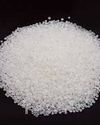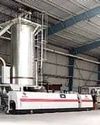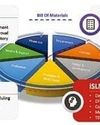
The Philippines records over 17.5 billion plastics thrown out each year, most of them ending up in the ocean. Tagged as a “sachet economy” due to the popularity of products bought in sachets by consumers, around 60 million sachets are used and disposed of each year adding up to the plastic waste volume.
During the virtual conference “2021 ASEAN Manufacturing Summit: Creating a Circular Economy for Plastic ” held in May 2021, Crispian Lao, Commissioner and Vice Chairman of the National Solid Waste Management Commission, and Founding President of the Philippine Alliance for Recycling and Material Sustainability (PARMS), discussed the Philippine law on solid waste and how the private sector is taking part in the implementation of a zero waste to nature program.
The National Solid Waste Management Commission is under the Office of the President of the Republic of the Philippines, and Mr. Lao is the Private Sector Representative for the recycling industry. He is a strong advocate for the environment through proper waste management and the development of enabling policies to promote technologically and economically viable investments in support of sustainable production.
Solid waste management – meeting the target
At the virtual summit, Mr. Lao talked about the Philippines ’ law on solid waste, the state of solid waste in the Philippines, the Philippines National Action Plan on Marine Litter, and the Zero Waste to Nature Program initiated by the PARMS in collaboration with the business sector.
هذه القصة مأخوذة من طبعة August 2021 من International Plastics News for Asia.
ابدأ النسخة التجريبية المجانية من Magzter GOLD لمدة 7 أيام للوصول إلى آلاف القصص المتميزة المنسقة وأكثر من 9,000 مجلة وصحيفة.
بالفعل مشترك ? تسجيل الدخول
هذه القصة مأخوذة من طبعة August 2021 من International Plastics News for Asia.
ابدأ النسخة التجريبية المجانية من Magzter GOLD لمدة 7 أيام للوصول إلى آلاف القصص المتميزة المنسقة وأكثر من 9,000 مجلة وصحيفة.
بالفعل مشترك? تسجيل الدخول

Industry innovations aimed towards a greener future
Sustainability and circular economy, energy saving technologies, high-performance materials with enhanced properties, and cost-efficient production processes are expected to dominate the plastics industry in 2022 and beyond.

Special extrusion lines for bioplastic compounds
The biodegradable and compostable plastics sector is growing steadily, and this is partly due to the fact that several measures have been taken, especially in the EU, to cut down on single-use plastics.

Plastics revolutionise medical device production
The coronavirus pandemic has brought into focus the urgent need for medical supplies – which included medical disposables, medical devices, laboratory equipment, and many others.

Spinning and recycling go together in a single step
As a medium-sized German machine construction business, BB Engineering has been manufacturing components and systems for synthetic fibre and film production for more than 20 years.

Advanced high-performance light stabilisers
A range of high-performance light stabilisers with enhanced properties are now being made available.

ArabPlast holds successful edition
The 15th Edition of ArabPlast was held on 15-18November 2021 at the Dubai World Trade Centre, Dubai, U.A.E. Spanning over 28 years, ArabPlast is an exclusive event for plastics, petrochemicals, packaging and rubber industry, and serves as an attractive platform where global industry players show off their products to the Middle East market.

Food-grade plastics recycling facility installed in India
The well-established Indian recycler commissioned a PET bottle-to-bottle and a post-consumer polyolefin recycling line from Starlinger in mid-September.

How to bring down downtime in manufacturing
For most of us, the word downtime conjures images of relaxation.

Optimistic forecast for blow moulded plastics market
Growing demand from key applications is a key factor in the projected growth of the blow moulding sector.

The benefits of dedicated system for mould development
When it comes to useful tools that can enhance teamwork efficiency, we usually think of the Product Lifecycle Management (PLM) systems.